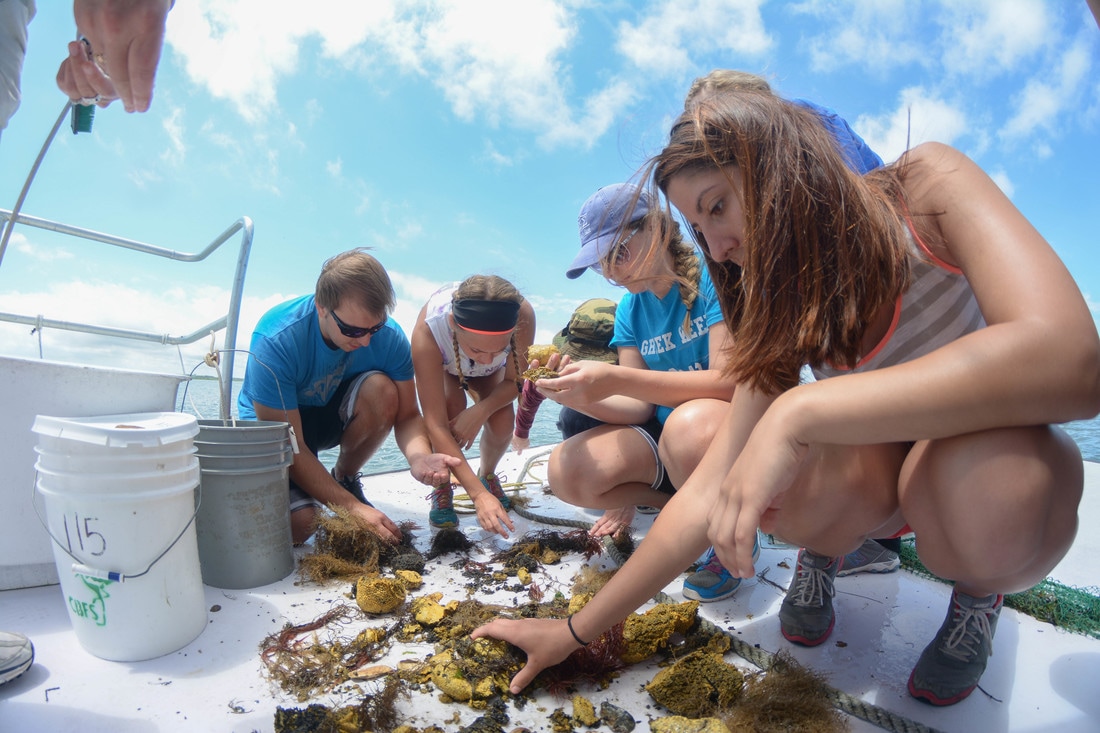|
If you've been to the Field Station before or even perused through our website you probably know that we're a science-education driven organization. Our programs primarily focus on the marine and coastal sciences and we interpret information for groups of all ages and interests. Sometimes that means observing bird behaviors from behind a camera during the Delmarva Nature & Wildlife Photography Summit taught by esteemed faculty like Jim Clark and Nikhil Bahl, or it might mean seining in the intertidal zone at Tom's Cove with Educator's Derrick and Sam with twenty Sea Squirt summer campers. Many of our college courses are research driven, with faculty like Aaron Haines who leads his Conservation Biology class of undergraduate students in conducting Rapid Biological Assessments for U.S. Fish & Wildlife at Wallops Island National Wildlife Refuge each summer. These hands-on and practical experiences are second-to-none when it comes to inspiring the next generation of stewards of the environment but we also gain a wealth of data from each of these programs that is recorded, shared, and examined for long-term patterns.
Science has been a hot topic in the news and on social media this week – something of course that makes us biology nerds pretty excited. PBS has released a timely piece on Rachel Carson's essential contributions to science and public health, articles like A Pioneering Woman of Science Re-Emerges After 300 Years is popping up on Facebook newsfeeds, and hashtags like #climatefacts are trending on Twitter. Science is the driver for innovation and we realize that our viewers are hungry for more of this content. In 2017 you're going to see our online presence shift to incorporate more of the essential science going on here at the Field Station and in the world in general. Whether you're a homeschool parent, an undeclared college student, or a life-long learner, we're committed to communicating some of the most interesting science through our channels. This is our resolution for 2017. Stay tuned. With this, we hope that you might consider making a resolution too: commit to giving yourself and the people in your life more experiences in the outdoors, get hands-on with science, dive deep into research, push the field forward. Doing this is easy and requires as little or much time as you can give. Support your local environmental education center through volunteering, join a Creekwatchers program, send your kids to science-focused summer camps, or encourage your local school board to prioritize field-based experiences. Now more than ever the world needs people who are invested in science and the environment. After all, plankton make the world go 'round.
0 Comments
|
About
Everything you need to know about CBFS's educational programs, visiting Chincoteague Island, and more! Categories
All
Archives
January 2019
|
CHINCOTEAGUE BAY FIELD STATION | 34001 Mill Dam Road | Wallops Island, VA 23337 | (757) 824-5636 | [email protected]

 RSS Feed
RSS Feed

